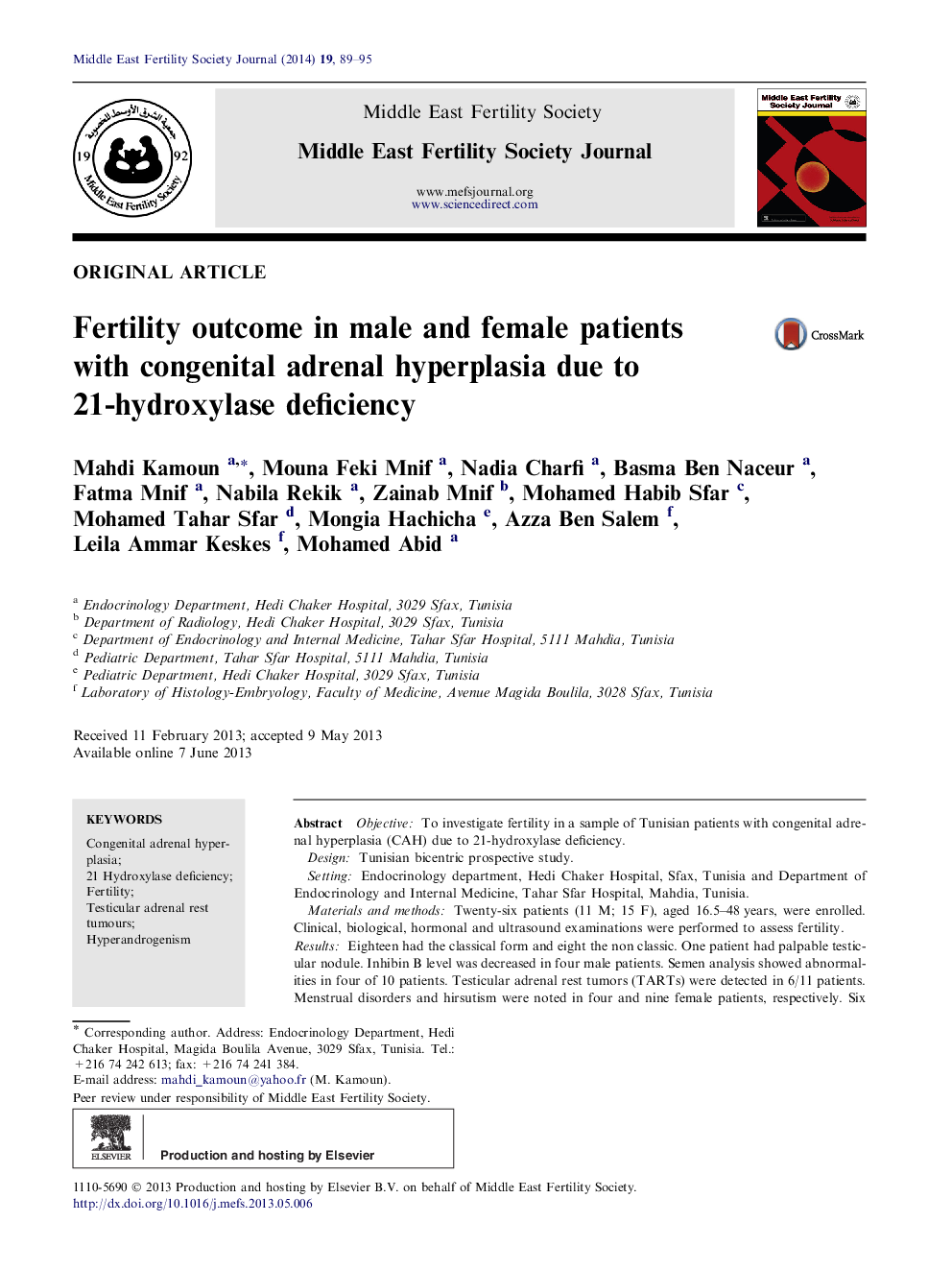| Article ID | Journal | Published Year | Pages | File Type |
|---|---|---|---|---|
| 3966169 | Middle East Fertility Society Journal | 2014 | 7 Pages |
ObjectiveTo investigate fertility in a sample of Tunisian patients with congenital adrenal hyperplasia (CAH) due to 21-hydroxylase deficiency.DesignTunisian bicentric prospective study.SettingEndocrinology department, Hedi Chaker Hospital, Sfax, Tunisia and Department of Endocrinology and Internal Medicine, Tahar Sfar Hospital, Mahdia, Tunisia.Materials and methodsTwenty-six patients (11 M; 15 F), aged 16.5–48 years, were enrolled. Clinical, biological, hormonal and ultrasound examinations were performed to assess fertility.ResultsEighteen had the classical form and eight the non classic. One patient had palpable testicular nodule. Inhibin B level was decreased in four male patients. Semen analysis showed abnormalities in four of 10 patients. Testicular adrenal rest tumors (TARTs) were detected in 6/11 patients. Menstrual disorders and hirsutism were noted in four and nine female patients, respectively. Six patients showed polycystic ovary syndrome. Anti-Mullerian hormone level was reduced in four female patients. Among four female patients who wished to get pregnant, two of them achieved one successful pregnancy, miscarriage occurred in one patient and the remaining patient was sterile. Fertility issues in our patients appeared to be related to poor hormonal control and a result of noncompliance with medication schedules.ConclusionFertility in male and female patients with CAH is reduced. Early and adequate glucocorticoid therapy along with good compliance, careful monitoring of androgen levels and continuous psychological management could contribute to improved fertility rates in this population, even among those with the severe variant.
